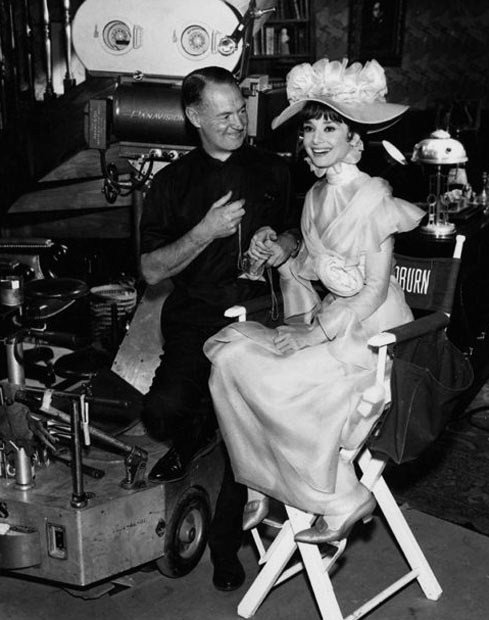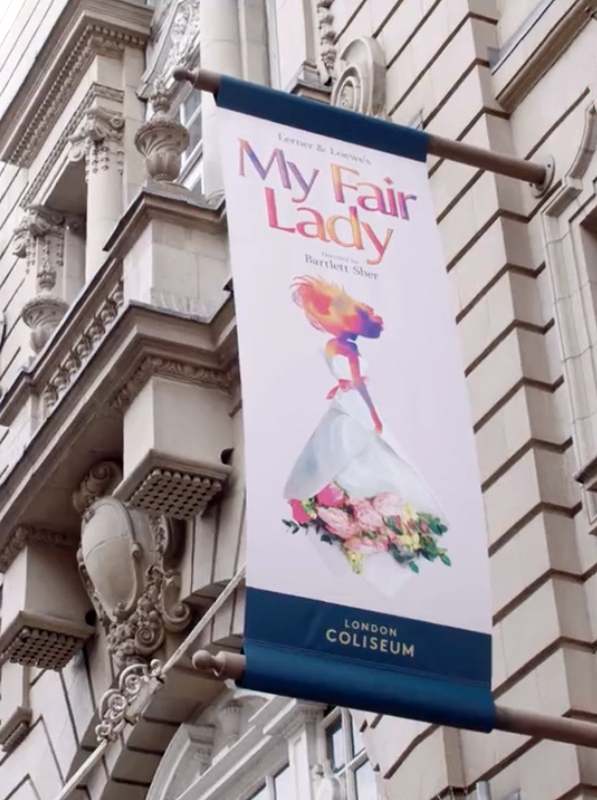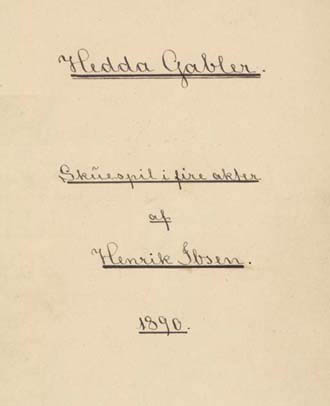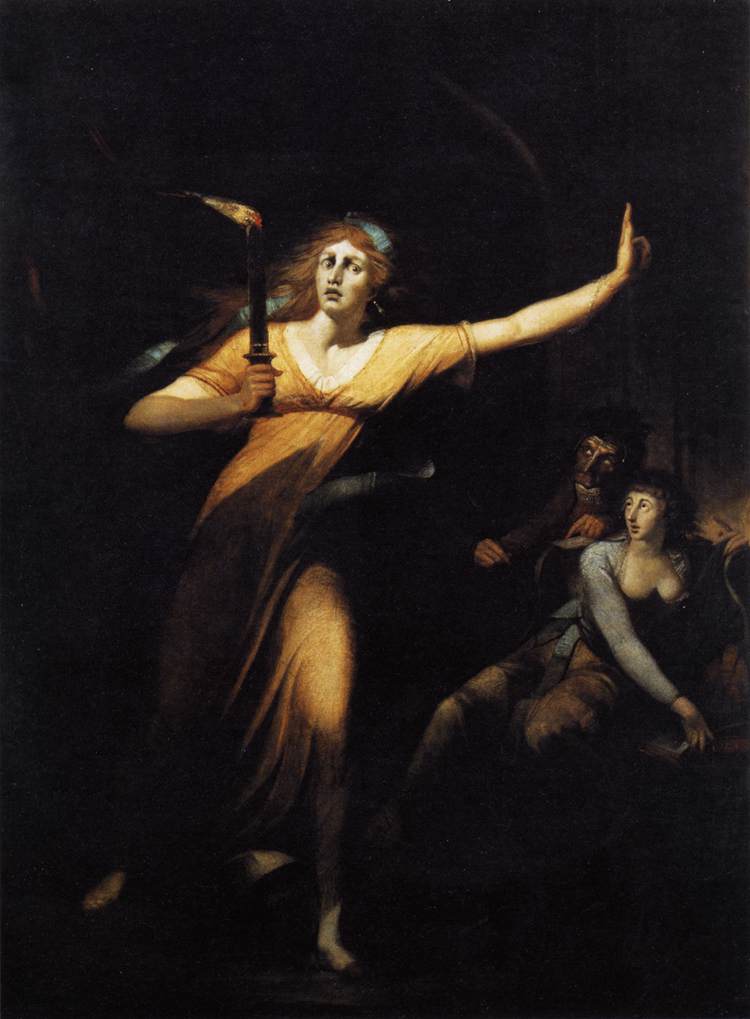|
Mona Hofland
Mona Hofland (24 November 1929 – 11 February 2010) was a Norwegian theatre and television actress. Biography Mona Hofland was born in Oslo, Norway. She studied at the Norwegian National Academy of Craft and Art Industry in Oslo and was a student at ''Studioteatret'' from 1949 to 1950. She had her stage debut at ''Studioteatret'' in 1949 and then built a reputation as a solid versatile actress. She performed numerous prominent roles, including Lady Macbeth, and the title roles in ''Hedda Gabler'' and ''The Lady of the Camellias''. She was also the first Norwegian Eliza Doolittle in a production of ''My Fair Lady''. She was married to the actor Espen Skjønberg Espen Henrik Skjønberg (7 April 1924 – 26 August 2022) was a Norwegian actor of stage, screen, and television. Career Skjønberg made his first movie appearances as a child in the 1932 film ''En glad gutt'' and in the 1937 Norwegian classic ..., and the two co-starred in several productions, most notably as hus ... [...More Info...] [...Related Items...] OR: [Wikipedia] [Google] [Baidu] |
Oslo
Oslo ( , , or ; sma, Oslove) is the capital and most populous city of Norway. It constitutes both a county and a municipality. The municipality of Oslo had a population of in 2022, while the city's greater urban area had a population of in 2019, and the metropolitan area had an estimated population of in 2021. During the Viking Age the area was part of Viken. Oslo was founded as a city at the end of the Viking Age in 1040 under the name Ánslo, and established as a ''kaupstad'' or trading place in 1048 by Harald Hardrada. The city was elevated to a bishopric in 1070 and a capital under Haakon V of Norway around 1300. Personal unions with Denmark from 1397 to 1523 and again from 1536 to 1814 reduced its influence. After being destroyed by a fire in 1624, during the reign of King Christian IV, a new city was built closer to Akershus Fortress and named Christiania in honour of the king. It became a municipality ('' formannskapsdistrikt'') on 1 January 1838. The city fu ... [...More Info...] [...Related Items...] OR: [Wikipedia] [Google] [Baidu] |
Eliza Doolittle
Eliza Doolittle is a fictional character and the protagonist in George Bernard Shaw's play ''Pygmalion'' (1913) and its 1956 musical adaptation, ''My Fair Lady''. Eliza (from Lisson Grove, London) is a Cockney flower woman, who comes to Professor Henry Higgins asking for elocution lessons, after a chance encounter at Covent Garden. Higgins goes along with it for the purposes of a wager: That he can turn her into the toast of elite London society. Her Cockney dialect includes words that are common among working class Londoners, such as ain't; "I ain't done nothing wrong by speaking to the gentleman" said Doolittle. Doolittle receives voice coaching and learns the rules of etiquette. The outcome of these attentions varies between the original play and the various adaptations (see the ''Pygmalion'' article). History The character of Eliza Doolittle was likely inspired by the real story of Eliza Sheffield (1856–1942), a barmaid in London who rose through the ranks of societ ... [...More Info...] [...Related Items...] OR: [Wikipedia] [Google] [Baidu] |
Oslo National Academy Of The Arts Alumni
Oslo ( , , or ; sma, Oslove) is the capital and most populous city of Norway. It constitutes both a county and a municipality. The municipality of Oslo had a population of in 2022, while the city's greater urban area had a population of in 2019, and the metropolitan area had an estimated population of in 2021. During the Viking Age the area was part of Viken. Oslo was founded as a city at the end of the Viking Age in 1040 under the name Ánslo, and established as a ''kaupstad'' or trading place in 1048 by Harald Hardrada. The city was elevated to a bishopric in 1070 and a capital under Haakon V of Norway around 1300. Personal unions with Denmark from 1397 to 1523 and again from 1536 to 1814 reduced its influence. After being destroyed by a fire in 1624, during the reign of King Christian IV, a new city was built closer to Akershus Fortress and named Christiania in honour of the king. It became a municipality ('' formannskapsdistrikt'') on 1 January 1838. The city fu ... [...More Info...] [...Related Items...] OR: [Wikipedia] [Google] [Baidu] |
Actresses From Oslo
An actor or actress is a person who portrays a character in a performance. The actor performs "in the flesh" in the traditional medium of the theatre or in modern media such as film, radio, and television. The analogous Greek term is (), literally "one who answers".''Hypokrites'' (related to our word for hypocrite) also means, less often, "to answer" the tragic chorus. See Weimann (1978, 2); see also Csapo and Slater, who offer translations of classical source material using the term ''hypocrisis'' ( acting) (1994, 257, 265–267). The actor's interpretation of a rolethe art of actingpertains to the role played, whether based on a real person or fictional character. This can also be considered an "actor's role," which was called this due to scrolls being used in the theaters. Interpretation occurs even when the actor is "playing themselves", as in some forms of experimental performance art. Formerly, in ancient Greece and the medieval world, and in England at the time of W ... [...More Info...] [...Related Items...] OR: [Wikipedia] [Google] [Baidu] |
2010 Deaths
This is a list of deaths of notable people, organised by year. New deaths articles are added to their respective month (e.g., Deaths in ) and then linked here. 2022 2021 2020 2019 2018 2017 2016 2015 2014 2013 2012 2011 2010 2009 2008 2007 2006 2005 2004 2003 2002 2001 2000 1999 1998 1997 1996 1995 1994 1993 1992 1991 1990 1989 1988 1987 See also * Lists of deaths by day The following pages, corresponding to the Gregorian calendar, list the historical events, births, deaths, and holidays and observances of the specified day of the year: Footnotes See also * Leap year * List of calendars * List of non-standard ... * Deaths by year {{DEFAULTSORT:deaths by year ... [...More Info...] [...Related Items...] OR: [Wikipedia] [Google] [Baidu] |
1929 Births
Nineteen or 19 may refer to: * 19 (number), the natural number following 18 and preceding 20 * one of the years 19 BC, AD 19, 1919, 2019 Films * ''19'' (film), a 2001 Japanese film * ''Nineteen'' (film), a 1987 science fiction film Music * 19 (band), a Japanese pop music duo Albums * ''19'' (Adele album), 2008 * ''19'', a 2003 album by Alsou * ''19'', a 2006 album by Evan Yo * ''19'', a 2018 album by MHD * ''19'', one half of the double album ''63/19'' by Kool A.D. * ''Number Nineteen'', a 1971 album by American jazz pianist Mal Waldron * ''XIX'' (EP), a 2019 EP by 1the9 Songs * "19" (song), a 1985 song by British musician Paul Hardcastle. * "Nineteen", a song by Bad4Good from the 1992 album '' Refugee'' * "Nineteen", a song by Karma to Burn from the 2001 album ''Almost Heathen''. * "Nineteen" (song), a 2007 song by American singer Billy Ray Cyrus. * "Nineteen", a song by Tegan and Sara from the 2007 album '' The Con''. * "XIX" (song), a 2014 song by Slip ... [...More Info...] [...Related Items...] OR: [Wikipedia] [Google] [Baidu] |
My Fair Lady
''My Fair Lady'' is a musical based on George Bernard Shaw's 1913 play ''Pygmalion'', with a book and lyrics by Alan Jay Lerner and music by Frederick Loewe. The story concerns Eliza Doolittle, a Cockney flower girl who takes speech lessons from professor Henry Higgins, a phonetician, so that she may pass as a lady. Despite his cynical nature and difficulty understanding women, Higgins grows attached to her. The musical's 1956 Broadway production was a notable critical and popular success, winning six Tony Awards, including Best Musical. It set a record for the longest run of any musical on Broadway up to that time and was followed by a hit London production. Rex Harrison and Julie Andrews starred in both productions. Many revivals have followed, and the 1964 film version won the Academy Award for Best Picture. Plot Act I In Edwardian London, Eliza Doolittle is a flower girl with a thick Cockney accent. The noted phonetician Professor Henry Higgins encounters Eliza at Cov ... [...More Info...] [...Related Items...] OR: [Wikipedia] [Google] [Baidu] |
The Lady Of The Camellias
''The'' () is a grammatical article in English, denoting persons or things already mentioned, under discussion, implied or otherwise presumed familiar to listeners, readers, or speakers. It is the definite article An article is any member of a class of dedicated words that are used with noun phrases to mark the identifiability of the referents of the noun phrases. The category of articles constitutes a part of speech. In English, both "the" and "a(n)" ar ... in English. ''The'' is the Most common words in English, most frequently used word in the English language; studies and analyses of texts have found it to account for seven percent of all printed English-language words. It is derived from gendered articles in Old English which combined in Middle English and now has a single form used with pronouns of any gender. The word can be used with both singular and plural nouns, and with a noun that starts with any letter. This is different from many other languages, which have d ... [...More Info...] [...Related Items...] OR: [Wikipedia] [Google] [Baidu] |
Espen Skjønberg
Espen Henrik Skjønberg (7 April 1924 – 26 August 2022) was a Norwegian actor of stage, screen, and television. Career Skjønberg made his first movie appearances as a child in the 1932 film ''En glad gutt'' and in the 1937 Norwegian classic ''Fant'', in which his mother also appeared. His stage debut came reciting poetry at the Norwegian theatre Chat Noir in 1945. He joined the Norwegian National Theatre in 1946 and became one of its most prominent figures, appearing in 64 different roles in the next 60 years. As late as 2006 he co-starred with Toralv Maurstad (who also appeared in ''Fant'') in an adaptation of '' Waiting for Godot''. Skjønberg's first starring role in films was in 1951's ''Vi vil skilles''. Throughout the years he has acted alongside Tom Courtenay, Nigel Hawthorne, Susannah York, Edward Woodward, Gérard Depardieu, and co-starred with Hollywood veterans Cliff Robertson and Robert Mitchum in the 1995 movie Pakten. In England, he was particularly associated ... [...More Info...] [...Related Items...] OR: [Wikipedia] [Google] [Baidu] |
Hedda Gabler
''Hedda Gabler'' () is a play written by Norwegian playwright Henrik Ibsen. The world premiere was staged on 31 January 1891 at the Residenztheater in Munich. Ibsen himself was in attendance, although he remained back-stage. The play has been canonized as a masterpiece within the genres of literary realism, nineteenth century theatre, and world drama.Bunin, Ivan. ''About Chekhov: The Unfinished Symphony''. Northwestern University Press (2007) . page 26Checkhov, Anton. ''Anton Chekhov's Life and Thought: Selected Letters and Commentary''. Editor: Karlinsky, Simon. Northwestern University Press (1973) page 385Haugen, Einer Ingvald. ''Ibsen’s Drama: Author to Audience''. University of Minnesota Press (1979) . page 142 Ibsen mainly wrote realistic plays until his forays into modern drama. ''Hedda Gabler'' dramatizes the experiences of the title character, Hedda, the daughter of a general, who is trapped in a marriage and a house that she does not want. Overall, the title character ... [...More Info...] [...Related Items...] OR: [Wikipedia] [Google] [Baidu] |
Lady Macbeth (Shakespeare)
Lady Macbeth is a leading character in William Shakespeare's tragedy ''Macbeth'' (). As the wife of the play's tragic hero, Macbeth (a Scottish nobleman), Lady Macbeth goads her husband into committing regicide, after which she becomes queen of Scotland. After Macbeth becomes a murderous tyrant, she is driven to madness by guilt over their crimes, and commits suicide offstage. Lady Macbeth is a powerful presence in the play, most notably in the first two acts. Following the murder of King Duncan, however, her role in the plot diminishes. She becomes an uninvolved spectator to Macbeth's plotting and a nervous hostess at a banquet dominated by her husband's hallucinations. Her sleepwalking scene in the fifth act is a turning point in the play, and her line "Out, damned spot!" has become a phrase familiar to many speakers of the English language. The report of her death late in the fifth act provides the inspiration for Macbeth's "Tomorrow and tomorrow and tomorrow" speech. The ... [...More Info...] [...Related Items...] OR: [Wikipedia] [Google] [Baidu] |





.png)

